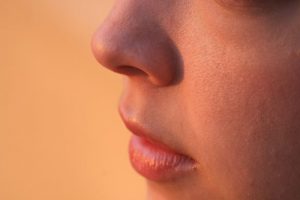Could Nasal Spray Cure Binge Eating?
 An experimental nasal spray is showing good results in helping people with binge eating disorder (BED) curb their habits, new research shows.
An experimental nasal spray is showing good results in helping people with binge eating disorder (BED) curb their habits, new research shows.
At the American Psychiatric Association’s 2013 Annual Meeting, results of a phase II trial with binge eaters and an intranasal naloxone spray were presented, revealing that the spray might be an unlikely solution to an eating disorder that is widespread and hard to cure.
“The findings are encouraging, and if this works out, it would be a big advance [in the treatment of BED],” study investigator Hannu Alho, MD, PhD, from the University of Helsinki, in Finland, told Medscape Medical News. “But this is the very first study, so it is still too soon to tell. But it could be very good.”
About naloxone
Naloxone is an opioid antagonist that is traditionally administered to help reverse effects of an opioid overdose, but other types of opioid antagonists have been used to treat alcohol dependence. In fact, the study’s lead author, David Sinclair, MD, said he has successfully used it to help alcoholics reduce cravings and prevent relapse. Based on these results, the research team wanted to determine if the naloxone spray would have the same impact on those with BED.
The study included 127 adults who were mostly women in their mid-30s to mid-50s. Overall, participants in the group taking the nasal spray spent about 75 percent less time binge eating than those in the placebo group, and they even saw a small decrease in BMI from week 12 to week 24 of the study.
How it works
Evelyn Attia, MD, director of the Center for Eating Disorders at New York–Presbyterian Hospital in New York City, said that because the spray targets opioid receptors, it might have the ability to reduce the frequency or severity of addictive behavior that is reward-based. However, she notes that the results warrant more research.
“All it really tells us at this point is that maybe there is a bit of a hint of something that may warrant some additional attention,” she told Medscape.
Alho also said that the placebo effect was strongly indicated in this study, and outcomes between the placebo and experimental groups would probably have shown more striking differences had the study been longer.
Source: Medscape Medical News
 Eating Disorder Self Test. Take the EAT-26 self test to see if you might have eating disorder symptoms that might require professional evaluation. All answers are confidential.
Eating Disorder Self Test. Take the EAT-26 self test to see if you might have eating disorder symptoms that might require professional evaluation. All answers are confidential.